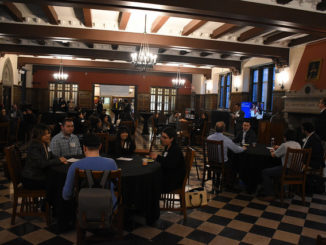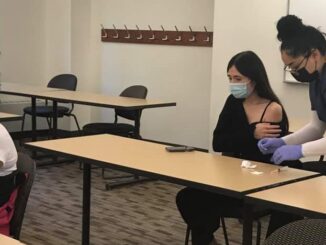
Emily Ford
Contributing Writer
A new plan announced by President Joe Biden in late August has set to forgive up to $20,000 worth of federal student loans for millions of students.
Applications will open online early next month in October and will take four to six weeks to process and will close on December 31, 2023, per the Department of Education.
However, this announcement comes with some terms and conditions. Not all student loan borrowers are eligible for this debt relief program. Those who have private student loans will be excluded from this opportunity as well as those who are considered “high-income federal loan borrowers”.
People who have federal student loans who make less than $125,000 a year and married couples and/or heads of households who make less than $250,000 a year will qualify for $10,000 of their federal student loans debt forgiven.
In addition, if those who qualify also received a federal Pell grant while they were enrolled in college, then that person is eligible for double the amount of debt forgiveness, meaning they could see up to $20,000 worth of debt forgiven.
Tracy Spivak, Dominican University’s Assistant Vice President for Student Enrollment Services, spoke about the details of this program about how this will affect Dominican students.
“The Department of Education has posted all the information that we are aware of on their website. We are still waiting for more detailed information from them. We have been doing our best to prepare for being ready to assist students to apply for the debt forgiveness program when the application process opens.”
The debt relief program is targeted at low- and middle-income families which means that this program is set to smooth out the transition to repayments while also helping those at a high risk of delinquency.
The controversy comes where the weight of the program falls heavily on those who have been working hard to pay off their loans before the announcement of this program and feel as though they could have used assistance years ago.
The question arises as to whether this debt relief program will help resolve an enormous issue that American students have been faced with at private higher education institutions or if this will simply paste a band-aid over the larger issue.
Aina Oda, 26, a senior at Dominican University expresses her thoughts about the program “in the grand scheme of things it’s an expensive and regressive plan” says Oda, “it’ll backfire on American taxpayers and it is unfair for people who avoided paying college tuition and unfair for those who have already paid off their debt” she says
“The relief program just barely scratches the surface on the problematic educational financing system we have in this country.”
Jasani Thompson, 19, in her sophomore year at Dominican expressed similar thoughts “I think it’s great that students can receive help with their student loan debt because the pandemic was difficult for so many people, but I do see how it’s unfair for those who have worked extremely hard to pay off their debt up until now. Where was this program for them?”
To effectively substantially reduce future monthly payments for low- to middle-income borrowers, the Biden-Harris Administration proposed a rule in the last part of the program.
This rule would allow borrowers to “pay no more than 5% of their discretionary income monthly on undergraduate loans”. It also guarantees that no borrower that earns equivalent to or under the minimum wage will have to make a monthly payment, forgive loan balances for those who have been making payments after ten years, and cover the borrowers’ monthly interest so that no borrowers loan balance will grow so long as they make their monthly payments even if the payment is $0 because they received no income.
As a result of this rule, students like Elizabeth Sobczak,19, who is also a sophomore at Dominican says that she will be utilizing the plan overall for the benefits. However, the struggle to pay off college debt hits home for many and includes “I would also like to emphasize that those who have private loans do not benefit from this plan and this is another problem in itself.”
Though there are no exact dates of when borrowers will receive their debt relief, federal loans with an outstanding balance as of June 30th, 2022, are eligible for relief.
Dominican will be assisting students with their questions about applying for the program. According to Spivak, “when it does go live, I anticipate we will post a notice on the dom.edu website and social media as well as email current students that they should check the link”
Spivak almost made sure to mention that “Since this is a government form we won’t be able to answer questions beyond the information that the Department of Education shares with us and we won’t receive any information about application submissions” she says “My best advice to students is to ensure they are signed up for the notification link. This is going to be the best way to get information directly from the Department of Education as it becomes available.”
Eford@my.dom.edu



